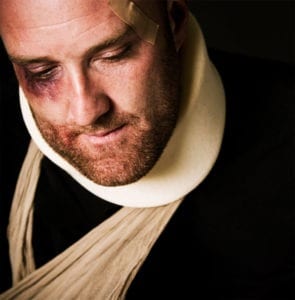Texas law provides a path for victims to seek financial compensation when someone is injured due to another person's negligence. Whether you were hurt in a car accident, slipped and fell on someone’s […]
The eggshell skull rule—also called the thin skull rule—says that you take your victim as you find them. Essentially, the frailty of the person who was injured cannot be used as a defense to limit the liability of the at-fault party.

What this means is that even in cases where the injuries were worse that one normally would have expected, the negligent party is still legally responsible for ALL consequences, including compensating the victim for any and all related medical bills. The defendant cannot rely on the victim's vulnerability to avoid liability.
While the term "eggshell skull" hints at its application in cases where the victim suffered a serious head injury or brain damage due to having a weaker-than-normal skull, it actually encompasses any pre-existing vulnerabilities or medical conditions the victim has. If, for example, a victim with hemophilia suffers serious blood loss and misses weeks of work after what was an otherwise minor injury, the person who caused the injury is still on the hook for every penny of their medical bills, lost wages, etc.
The thought process behind the eggshell skull rule is that compensating an injured person for any harm the defendant actually caused him or her is the only fair thing to do. What this means is that the defendant has an obligation to accept the plaintiff (victim) just as he is, including any medical conditions that are not clearly visible. On the other hand, the defendant has no obligation to provide a higher duty of care when it involves an eggshell plaintiff; the duty of care is the same, even when the plaintiff suffers from a pre-existing mental or physical condition.
There are a few situations which can complicate the eggshell skull rule; specifically intervening causes and issues of comparative negligence. When an intervening cause (an event that occurs after the initial act of negligence and breaks the chain of causation) causes an additional injury of further aggravates the initial injury, the court will likely rule that those particular damages were unforeseeable and thus not the responsibility of the original defendant (although you can likely seek compensation from the second party for those damages as well).
If the plaintiff puts him or herself in harm's way or contributes to the severity of his or her injuries by way of their own actions (e.g., thinned blood due to alcohol intoxication leading to excessive bleeding), the total amount of compensation awarded may be reduced by the victim's own percentage of comparative negligence. If the jury determines that the victim suffered $100,000 in damages, but also places 10% of the negligence on the victim, the victim will only be awarded $90,000.
When there is a possibility a plaintiff may have suffered more injuries than the average person because of pre-existing health conditions, the victim's attorney will present this information to the judge, and the judge will decide whether the eggshell skull rule applies in this individual case. If it does, the jury must consider this when they calculate the amount of damages the victim should receive. The judge will instruct them to consider the entire amount of damages—even if those damages are higher than what the average person would incur.
If you or a loved one has suffered an injury or wrongful death that may fall under the eggshell skull rule, it's vital that you have an attorney look into the facts of your case as soon as possible. You only get one shot at bringing your case, and failing to correctly apply (and successfully argue) this rule in court can severely limit the potential value of your case.
Our Dallas personal injury lawyers are experienced in this area of law, and are happy to provide you with a free consultation either over the phone ((214) 651-6100) or by emailing us using the contact form on this page. If we feel as though we can help you with your case, you can hire us to pursue your claim without risking a single penny of your own money. We work on contingency, meaning that we only earn a fee if we actually put money in your pocket.
The attorneys at Rasansky Law Firm are happy to speak to you about your potential case free of charge. If we can help with your claim, we'll do so for no out-of-pocket cost to you. Call us 24/7 at (214) 651-6100.
Note: The information that was utilized in this post was gathered from the use of secondary sources. This information used has not been confirmed or independently verified. If you locate any information that is not correct, please contact our firm as soon as possible so that we can make the appropriate corrections. If you find any information that is false, we will remove or correct the post immediately after it is brought to our attention.
Disclaimer: As a valued member of the Dallas community, Rasansky Law Firm’s goal is to improve the safety of all residents in the great state of Texas. These posts should not be viewed as a solicitation for business and the information included herein should not be taken as medical or legal advice. The photos used in this post are not representative of the actual crash scene.
Over 30+ Years Of Personal Injury Experience
Top-Rated and Award-Winning Personal Injury Lawyers
Attorneys Available to Discuss Your Case Now
No Fee Unless You Win
Free Confidential Consultation.
Fill out the form below to receive a free and confidential initial consultation with an experienced personal injury lawyer.